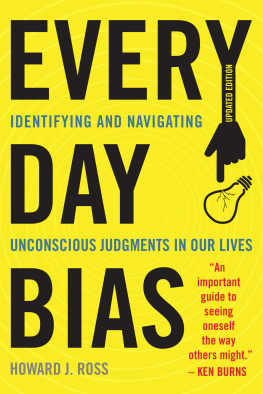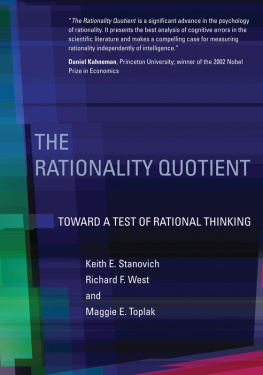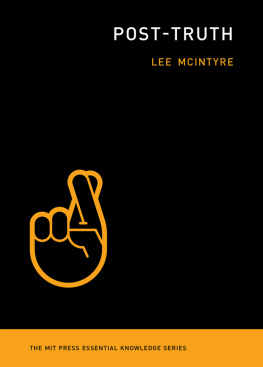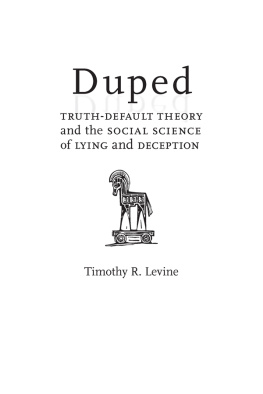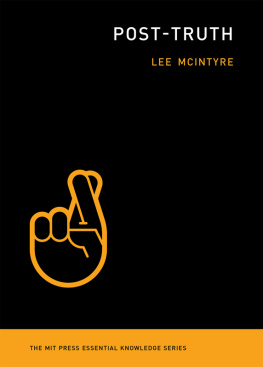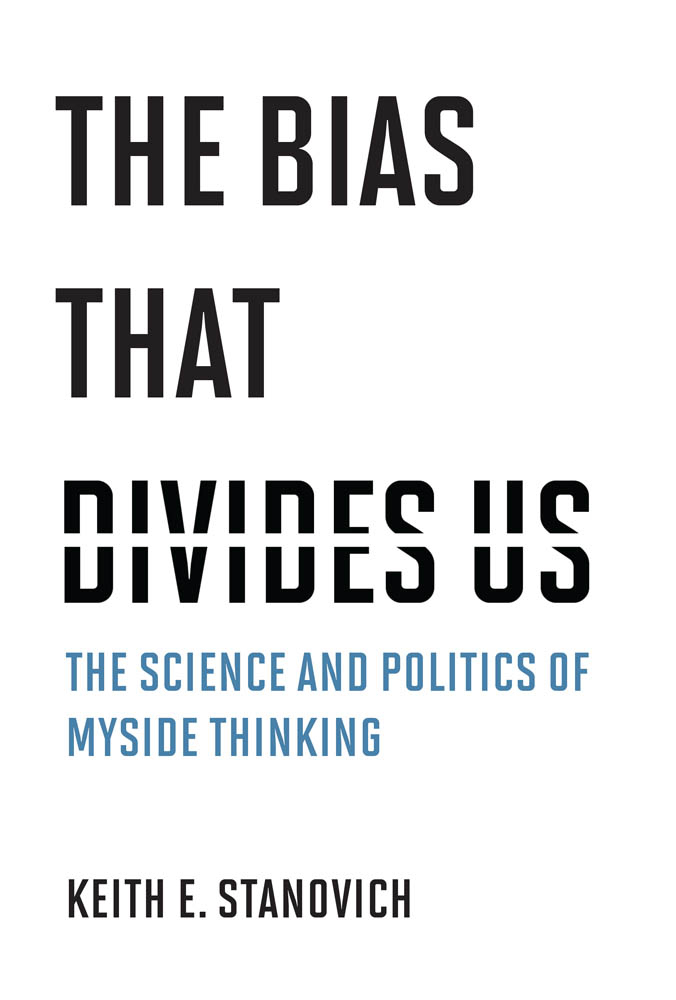Preface
In the wake of the 2016 presidential election, there was widespread concern about the accuracy of information available to voters about the issues and the candidates. There were debates about how much fake news had affected the election, and there was widespread concern about biased news reporting and censoring by the arbiters of social media. People from both ends of the ideological spectrum thought that the media had failed to present information in an unbiased manner. A polarized electorate seemed to be looking at the world from diametrically opposed perspectives. The cover of Time magazine on April 3, 2017, carried the title Is Truth Dead? There were many essays and op-eds lamenting that we had become a post-truth society, a term that the editors of the Oxford dictionaries had named as the word of the year for 2016.
Despite its popularity, I will not be employing the term post-truth in this volume because it is too often taken to imply that our current society fails to value the truth. The crux of our current societal dilemma, however, is not that we have come to disregard the truth or become cavalier toward it, but that we are selective in displaying our post-truth tendencies. Neither side in the political debate thinks that everything in society is post-truth. What we do believe is that our political enemies are post-truth. We dont think that all the news we see in the media is fake newsonly the news that emanates from our political opponents. We believe in our truth, in our news. We do value truth and factsbut only when they support our views.
What our society is really suffering from is myside bias: we evaluate evidence, generate evidence, and test hypotheses in a manner biased toward our own prior beliefs, opinions, and attitudes. We are not living in a post-truth societywe are living in a myside society. Our political peril stems from our inability to converge on commonly accepted facts and truth, not from our inability to value or respect facts and truth. In scientific practice, there are mechanisms for converging on the truththings like publicly agreed upon operational definitions. In real life, however, we tend to define concepts with a myside bias, and this tendency ensures that evidence will not lead to convergence, as it does in science.
That we are facing a myside bias problem and not a calamitous abandonment of the concept of truth is good news in at least one sense: the phenomenon of myside bias has been extensively studied in cognitive science. Understanding it may help to alleviate our present scourge of political divisiveness.
Introducing readers to some of the paradigms used to study myside bias, chapter 1 will demonstrate how behavioral scientists from various disciplines have studied this bias in the lab. We will see that myside bias is ubiquitousindeed, one of the most universal biases that has been studied. Chapter 2 will deal with the vexing question of whether myside bias, for all the negative effects it seems to have, should really be considered a reasoning error or whether it has some rational justification.
Although psychologists have studied a considerable number of thinking biases, myside bias stands out as unusual in several respects. Chapter 3 will discuss how most biases that have been studied can be predicted from various cognitive abilities (intelligence and executive function measures, for example) and from thinking dispositions related to rationality. In contrast, however, myside bias is not predictable from standard measures of cognitive and behavioral functioning. Furthermore, it has very little domain generality: myside bias in one domain is not a very good predictor of myside bias in another. As one of the most unpredictable of the biases in an individual difference sense, myside bias is thus an outlier biasand that has important social, political, and psychological consequences.
For one, to study it, we need a different type of modelone that does not connect this bias to the traditional types of cognitive abilities and personality traits that psychologists study. Chapter 4 will argue that models focusing on the properties of acquired beliefs rather than cognitive processes provide better frameworks for the study of myside bias.
And because myside bias is not predictable from traditional psychological measures, chapter 5 will explain how it creates a true blind spot among cognitive elites. Cognitive elites (those high in intelligence, executive functioning, or other valued psychological dispositions) often predict that they themselves are less biased than other people when queried about other well-known psychological biases (overconfidence bias, omission bias, hindsight bias, anchoring bias). They are often correct in their predictions because cognitive sophistication is moderately correlated with the ability to avoid most of the biases that have been studied. But because myside bias is an exception, an outlier, it is the bias where the cognitive elites most often think they are unbiased when in fact they are just as biased as everyone else.
In chapter 6, I explore how this bias blind spot contributes to the ideological polarization of our current politics and to a troubling new trend: the decline of trust in university research as a disinterested arbiter of pressing social issues. I will discuss what can be done to stem the effects of the kinds of myside biases that have led to our poisonous politics and that interfere with our ability to unify as a nation.
Acknowledgments
Throughout the first decade of this century, my research group published a series of papers on myside bias (Macpherson and Stanovich 2007; Stanovich and West 2007, 2008a; Toplak and Stanovich 2003) that each contained a surprising finding: myside bias was not attenuated by cognitive ability. In Myside Bias, Rational Thinking, and Intelligence (Stanovich, West, and Toplak 2013), we summarized these converging results, highlighting the unusual individual difference findings. In many heuristics and biases tasks, including ones seemingly similar to myside reasoning paradigms such as belief bias tasks, subjects of higher ability are better able to avoid the bias. In our 2013 paper, we provided a preliminary theoretical context for understanding our curious findings regarding myside bias.


